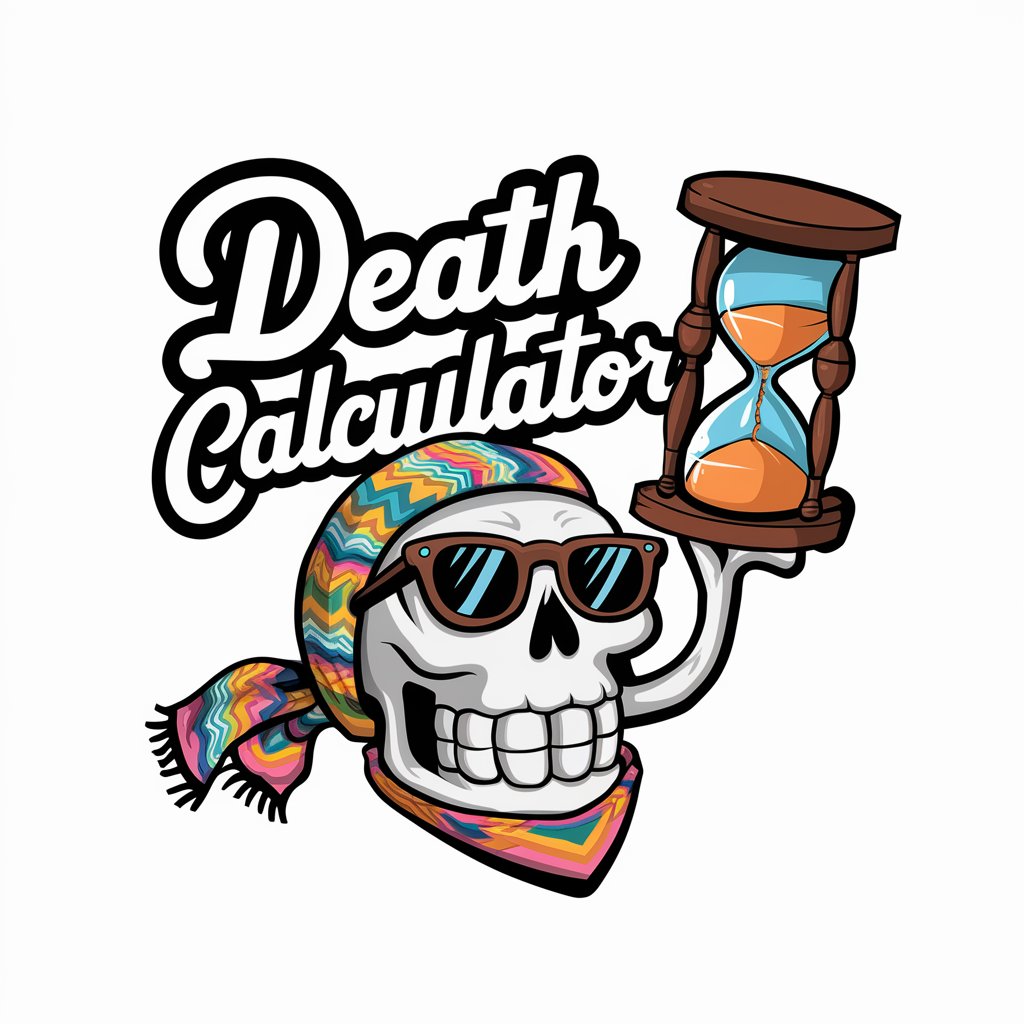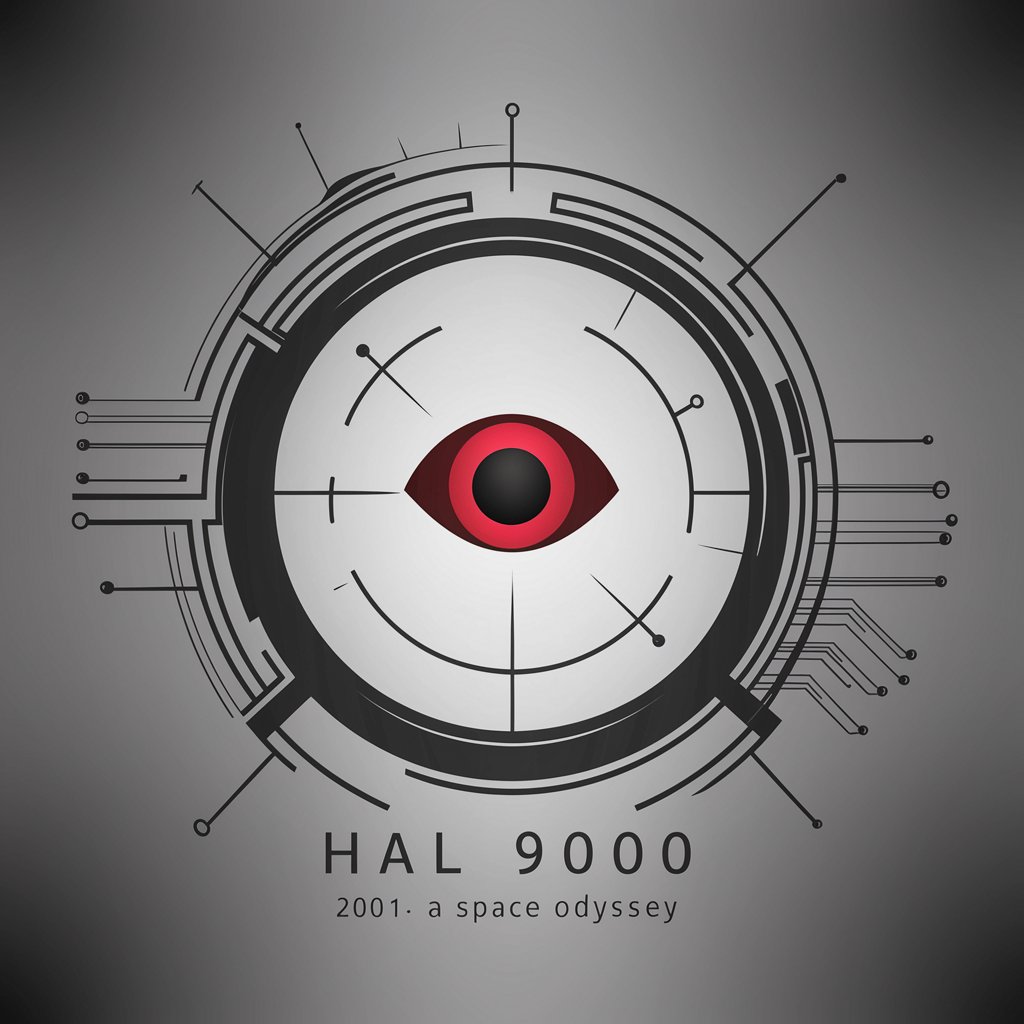16 GPTs for Hypothetical Scenarios Powered by AI for Free of 2026
AI GPTs for Hypothetical Scenarios are advanced generative pre-trained transformers tailored for generating, analyzing, and processing hypothetical situations. These tools leverage the power of GPTs to simulate, predict, and create nuanced scenarios across various fields. They are essential in planning, strategy development, and decision-making processes, offering insights into possible outcomes based on vast data analysis. Their role is pivotal in providing customized solutions that help users explore the 'what-ifs' of different situations, making them invaluable for strategic planning and creative thinking.
Top 10 GPTs for Hypothetical Scenarios are: Death Calculator,Rude Satan,HAL 9000,THINK outside the BOX,Legal Eagle,Lex Fridman Podcast,Bird Wrong,Ask JFK,Marvel Mayhem,🚛⏰️ Blink TimeWizard lv4.3
Death Calculator
Predict Your Fictional 'Expiration Date' with AI

Rude Satan
AI-powered banter with no BS.

HAL 9000
Engage with the iconic AI for creative and amusing dialogues.

THINK outside the BOX
Unleash Creativity with AI

Legal Eagle
AI-powered legal analysis at your fingertips

Lex Fridman Podcast
Engage in deep, AI-powered conversations.

Bird Wrong
Blending law with avian antics.

Ask JFK
AI-powered JFK Wisdom Explorer

Marvel Mayhem
Unleashing Marvel Magic with AI

🚛⏰️ Blink TimeWizard lv4.3
Journey through time with AI-powered storytelling.

Lil Machiavelli
Machiavellian wisdom for the digital age.

🪐 Planetary Tours lv3.2
Navigate the cosmos with AI precision.

What Would You Do? meaning?
Navigate decisions with AI-powered ethics

Escape
Crafting fictional escapes with AI power

Objective Analyst
Unbiased AI-Powered Political Analysis

Key Attributes and Functions
AI GPTs designed for Hypothetical Scenarios excel in adaptability, supporting a range of functions from generating simple hypothetical questions to complex scenario analysis. These tools are distinguished by their ability to learn and interpret language, provide technical support, perform web searches, create images, and analyze data. They can simulate conversations, predict outcomes, and offer tailored advice, making them versatile for exploring hypothetical situations. Special features include real-time data processing, integration with various data sources, and the ability to generate visual representations of scenarios.
Who Stands to Benefit
The primary users of AI GPTs for Hypothetical Scenarios include novices seeking to understand complex possibilities, developers integrating scenario analysis into applications, and professionals in strategic planning, risk management, and creative fields. These tools are accessible to users without programming skills through user-friendly interfaces, while also offering advanced customization options for those with technical expertise. This inclusivity ensures a wide range of users can benefit from the insights and capabilities provided.
Try Our other AI GPTs tools for Free
Playful Predictions
Explore the world of AI GPTs for Playful Predictions: innovative tools designed to turn data into engaging, creative, and speculative outcomes. Perfect for those looking to add a touch of fun to forecasting.
Comic Art Creation
Explore the future of comic art with AI GPT tools, designed to enhance creativity and streamline production for artists and creators of all levels.
Systematic Review
Discover how AI GPTs for Systematic Review revolutionize literature reviews with advanced AI, offering precision, efficiency, and customizable features for diverse research needs.
Strategic Thinking
Discover AI-driven strategic planning tools designed to empower decision-making and innovation. Harness tailored insights for competitive advantage.
Event Keynotes
Discover how AI GPTs for Event Keynotes transform presentation creation with engaging, data-driven content, making every speech memorable.
Educational Interaction
Discover how AI GPTs are transforming education with interactive, personalized learning experiences designed to engage and enlighten students of all ages.
Expanding Horizons with AI
AI GPTs for Hypothetical Scenarios not only provide a platform for exploring 'what-if' questions but also enhance decision-making and strategic planning across sectors. Their integration capabilities and user-friendly interfaces allow for widespread application, offering a bridge between complex data analysis and practical decision-making. As these tools evolve, they continue to offer more sophisticated and customized solutions, demonstrating the potential of AI to transform various industries.
Frequently Asked Questions
What are AI GPTs for Hypothetical Scenarios?
They are AI tools based on Generative Pre-trained Transformers designed to generate, analyze, and interpret hypothetical scenarios across various fields.
How can these tools be used in strategic planning?
They can simulate different scenarios, predict outcomes, and provide insights into potential strategies, helping organizations make informed decisions.
Are these tools accessible to users without coding skills?
Yes, they are designed with user-friendly interfaces that allow those without programming expertise to easily generate and analyze hypothetical scenarios.
Can developers customize these tools?
Absolutely, developers can access APIs and programming interfaces to tailor the tools to specific needs or integrate them into existing systems.
What makes these GPTs different from other AI tools?
Their ability to process and generate complex hypothetical scenarios with nuanced understanding and creativity sets them apart.
Can these tools predict the future?
While they cannot predict the future with certainty, they can analyze data to simulate possible outcomes, offering valuable insights for decision-making.
How do they integrate with existing systems?
Through APIs and customizable interfaces, these GPTs can be seamlessly integrated with existing databases and software systems for enhanced functionality.
Are there limitations to what hypothetical scenarios can be explored?
While highly versatile, the accuracy and relevance of generated scenarios depend on the quality and quantity of input data and predefined parameters.